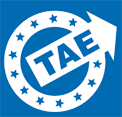TAE Ugent Call: Reject the Spanish proposal on the Platform Worker Rights Directive!
URGENT CALL TO EU MEMBER STATES BY THE TAXPAYERS ASSOCIATION OF EUROPE, FREELANCE MOVEMENT and ZPP POLAND - UNION OF ENTREPRENEURS AND EMPLOYERS
One-Person companies threatened in Europe: Member States should reject the Spanish proposal on the Platform Worker Rights Directive tomorrow!
The Platform Worker Rights Directive preliminary deal puts at risk thousands of one-person companies that use platforms to offer their services, disregarding their will and goals. If the directive is approved, one-person companies will either be forced into an employment relationship that will limit their opportunities and diminish their flexibility to offer their services via platforms when they want. On top of this it will put the burden of creating the digital infrastructure that can enable their digitalisation themselves. That would massively increase the cost for small entrepreneurs and practically block them from accessing clients via platforms.
The Platform Work Directive (PWD) preliminary deal will impede the digitalisation of SMEs as it will create additional obstacles for them using digital tools like platforms to find clients. The result would be a reduction in the SME output and less options for EU citizens. The PWD preliminary deal ignores that many of the platform workers using platforms to offer their services are actually SMEs or family businesses that risk losing an important channel of diversification of their consumer base.
The Platform Work Directive preliminary deal fails to address a key issue: Taxation. An employment status comes both with rights but also obligations. One person companies that may be reclassified against their will, due to the lack of clarity created by the presumption mechanism, may find themselves in a position whereby they face a tax bill that is significantly higher than what they had planned as employees, and self-employed service providers have significantly different tax obligations.
The preliminary deal of the Platform Work Directive (PWD) represents a pivotal moment in the European Union's digital economy. However, its implications could be dire for small and medium-sized enterprises (SMEs) and one-person companies. These entities, which have been harnessing digital platforms to expand their reach and flexibility, now face the risk of being subsumed under a regulatory framework that might not align with their needs or aspirations.
1. Forcing One-Person Companies into Unwanted Employment Relationships
At the core of the issue is the directive's potential to force thousands of one-person companies into employment relationships. This shift disregards the fundamental reasons many entrepreneurs choose platform work: flexibility and autonomy. By mandating an employment status, these individuals could lose the ability to offer their services on their terms, a flexibility that is essential for their business model.
2. Overlooking the Taxation Quagmire
A particularly concerning aspect of the directive is its failure to address the taxation implications adequately. The presumption mechanism within the directive, which lacks clarity, could lead to many one-person companies being reclassified against their will. This reclassification could saddle them with a tax burden significantly higher than anticipated, given the disparate tax obligations of employees and self-employed service providers.
3. The Burden of Digital Infrastructure Development
Furthermore, the directive places an onerous burden on these small entities to develop their digital infrastructures. For many small entrepreneurs, this requirement translates into a significant increase in operational costs, effectively barring them from accessing clients via digital platforms. This aspect of the directive not only undermines the entrepreneurial spirit but also limits the avenues for small businesses to compete and thrive in a digital economy.
4. Impeding SMEs' Digitalisation and Market Access
The directive also poses a substantial barrier to the digitalisation of SMEs. By adding layers of complexity and regulatory hurdles, it inadvertently restricts their ability to use digital tools for client acquisition and service delivery. This restriction could lead to a decrease in SME output and diminish the variety of options available to EU citizens. It is crucial to recognize that many platform workers are, in reality, SMEs or family businesses. The PWD preliminary deal, therefore, risks stripping away a vital channel for these businesses to diversify their consumer base and maintain economic viability.
Conclusion
The Platform Work Directive preliminary deal, while well intentioned in its efforts to regulate the digital economy, overlooks the need of SMEs and entrepreneurs for flexibility and control. In its current form, it threatens to stifle the entrepreneurial spirit that drives much of the EU's innovation and economic growth. A more nuanced and legally certain approach, one that acknowledges and accommodates the diversity of entities operating within the digital platform ecosystem, is imperative. The directive’s negotiations continue and should aim to support, not hinder, the growth and flexibility that digital platforms offer to small-scale entrepreneurs and businesses.
| |
|
Brussels/Munich, 23.1.2023



